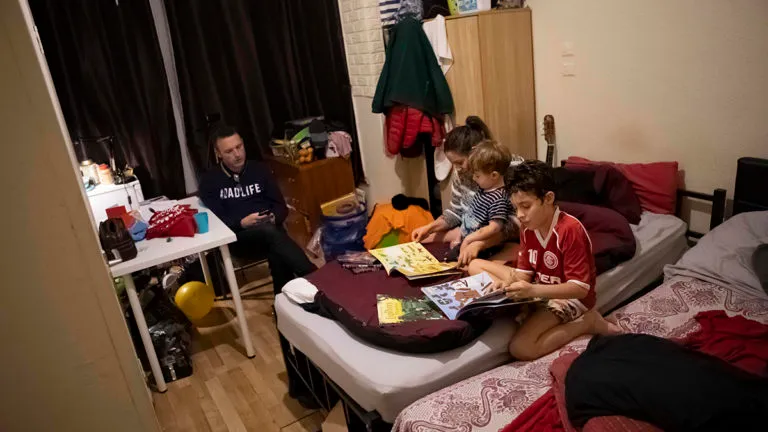Unscrupulous firms are cashing in on the housing emergency
Published: by Polly Neate

Homelessness is big business. I do not mean for the homeless families forced to live in squalid ‘temporary accommodation’, you understand. But plenty of people are queueing up to make money from it, and the opportunities to cash in are there.
Last night’s Panorama on the BBC shone a light on a murky world. More than 86,000 households in England are living in temporary accommodation – a population the size of York. And it is costing councils over a billion pounds.
How did this astronomical cost mount up? We’re in the middle of a housing emergency: soaring rents, deep housing benefit cuts, no-fault evictions, and behind it all a chronic shortage of social housing. So despairing homeless families turn to their councils, which legally have to help, but with no social housing they have to find somewhere, anywhere, for them to go.
Step forward the homelessness tycoons. Aware of the desperation of councils, enterprising individuals have seized the opportunity to make millions of pounds of public money by providing cramped and squalid ‘units’ of temporary accommodation.
Shelter investigated this symptom of the housing emergency. Through freedom of information requests, we tracked down the destination of half of the annual billion-pound spend.
We discovered self-described as ‘social housing solutions’ that are nothing of the sort. These murky and often multi-faceted businesses are unregistered and unregulated. Some exploit permitted development rights, where a developer can convert former office buildings into a warren of tiny units, without planning permission or any consideration of safety risks. The result is human warehouses on remote industrial estates, where children have nowhere to play but a carpark and share one cramped room with their parents.
In many cases the so-called providers have no accommodation of their own. They are in effect letting agents, enticing private landlords away from direct lets with offers of guaranteed rents and maximised revenue. These units are offered to councils at extortionate rates.
And so the housing crisis is monetised: public money pays for landlords’ and agency directors’ mansions and pools, while families raise their children in grimy, shoebox rooms.
The government must get a grip. Ministers have inherited a system where billions of pounds of taxpayers’ money is spent to accommodate homeless families in these dreadful places. Councils need an alternative: the government must instead invest in decent, affordable social homes.
If the chancellor is serious about ‘levelling up’ our country with next month’s Budget, he should start with the shameful condition in these modern slums and the millions being made by those willing to profit from them.
This article originally appeared in The Times and can be found here.